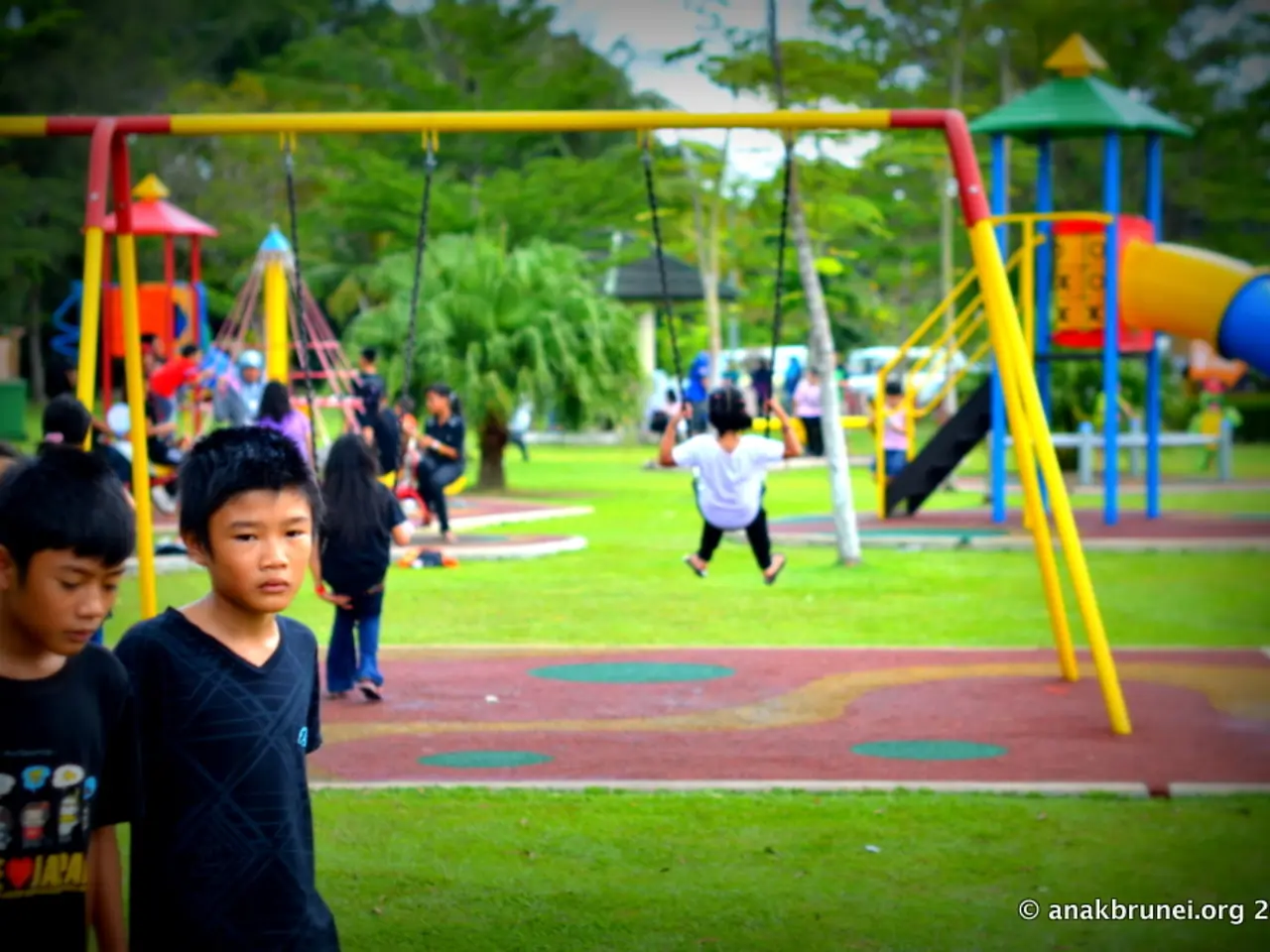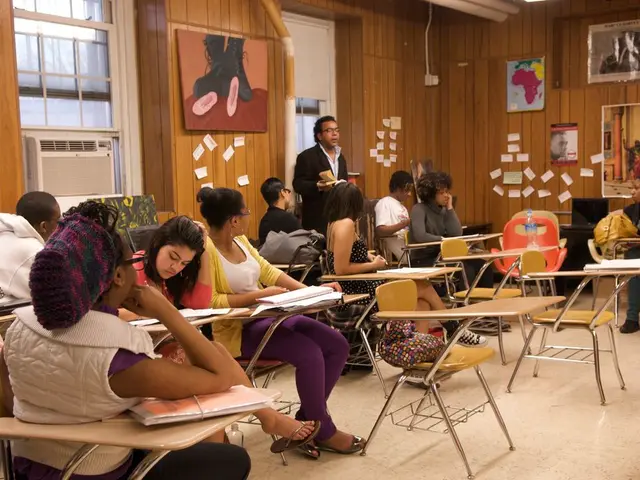Immersion-Based Education for Children: Cultivating Comprehension through Engaging Activities
### Experiential Learning Revitalizes Early Childhood Education
Experiential learning, a teaching method that emphasizes hands-on experiences and interactive engagement, is making a significant impact in early childhood education. This approach, which incorporates play-based learning as a fundamental component, encourages children to learn through active participation and meaningful experiences rather than passive instruction.
### The Core of Experiential Learning
1. **Play-Based Learning**: This is the foundation of experiential learning. Play allows children to explore their environment, interact with various materials, and engage with peers, fostering experiential learning[2][4].
2. **Hands-On Exploration**: Children are encouraged to learn through direct experience, such as building ramps to understand motion and energy[1], rather than through lectures or textbooks.
3. **Social Interaction**: Experiential learning promotes social skills like sharing, taking turns, and conflict resolution through group activities and play[2].
4. **Creativity and Imagination**: Play-based activities stimulate creativity and imagination, as children engage in role-playing and creative projects[2].
5. **Cognitive Development**: Experiential learning enhances cognitive skills like problem-solving, memory, and language development by presenting children with challenges and opportunities to find solutions[4].
### The Impact of Experiential Learning
The benefits of experiential learning are manifold:
- **Engagement and Motivation**: Children are more likely to be engaged and motivated when learning is enjoyable and relevant, leading to better retention of information[2].
- **Cognitive Development**: Research shows that play-based learning is strongly correlated with improved cognitive performance in areas such as attention, memory, and problem-solving[4].
- **Emotional and Social Growth**: Experiential learning helps children develop emotional intelligence and social skills essential for future academic success and personal well-being[2].
- **Long-Term Learning Outcomes**: Early exposure to experiential learning can foster a lifelong love of learning and prepare children for more complex educational environments.
### The Advantages Extend to Various Disciplines
Experiential learning is not confined to a single subject. For instance, constructing ball ramps can help children develop an intuitive understanding of motion and energy in physics[1]. The "Orbit Drop" exhibit introduces children to concepts like gravity, speed, and momentum[1].
### The Legacy of Experiential Learning
The renowned educational theorist John Dewey advocated for active, social, and real-world connected learning[3]. Jean Piaget, another influential figure, believed that teaching a child something takes away their chance to discover it for themselves. Experiential pedagogy returns that chance-over and over again[6].
Research by Novack, Congdon, Hemani-Lopez, and Goldin-Meadow suggests that guiding children's body movements can help prepare them to learn new concepts[7]. Movement-based learning benefits children with attention differences, improving academic performance, especially in children with ADHD or sensory challenges[8].
### Encouraging Experiential Learning at Home
Families can encourage hands-on exploration at home with simple activities like building cardboard ramps, conducting kitchen science experiments, or using open-ended building materials[9]. Museums like Museo dei Bambini are designed to promote experiential learning through sensory play, physical challenges, and hands-on experiments[9].
The key to effective experiential learning is inviting children to test, reflect, and ask, "What happens if...?"[5]. A study by the University of Chicago found that physically acting out scientific concepts activates brain regions associated with memory and understanding[4]. Another study found that children who engaged in hands-on science scored significantly higher in language development and executive function than those who learned passively[10].
In conclusion, experiential learning offers a holistic approach to education that combines cognitive, social, and emotional development, setting a strong foundation for future educational success.
- Besides learning at school, visiting museums like the Museo dei Bambini that emphasize experiential learning can further enhance a child's development at home.
- As play is a cornerstone of experiential learning, incorporating home-and-garden projects with creative elements, such as building cardboard ramps, can stimulate imagination and creativity in children.
- In addition to developing important life skills like problem-solving, memory, and language, experiential learning also plays a crucial role in education and self-development, encouraging lifelong learning and fostering a strong foundation for future academic success.




